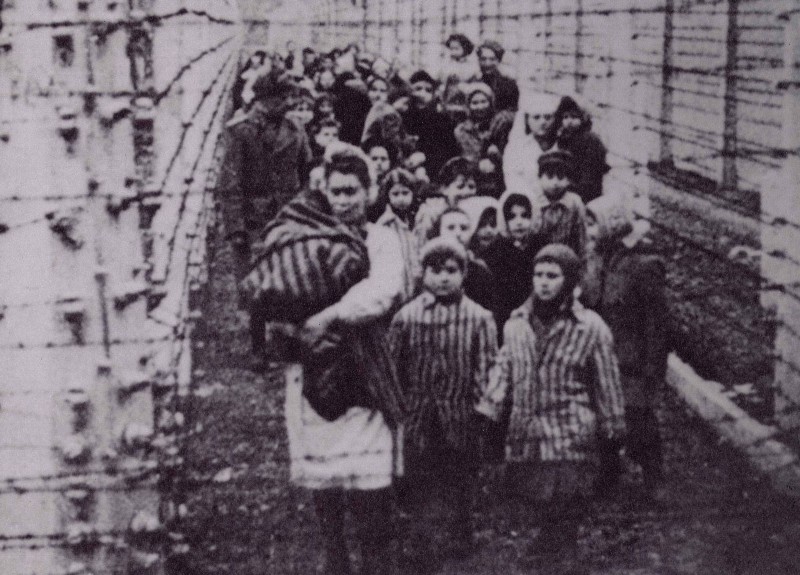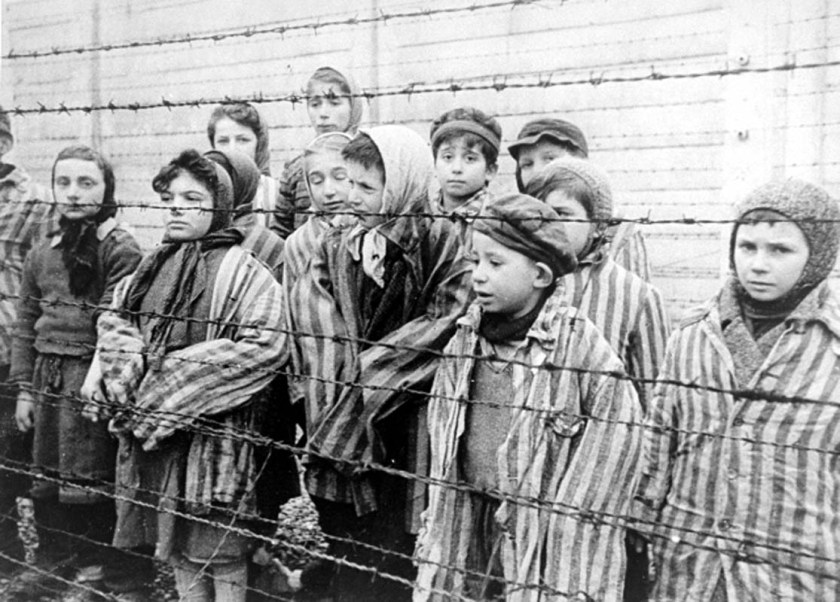
Fifty years after her liberation, Eva Mozes Kor stood at the ruins of the gas chambers in Auschwitz.
While overlooking these machines of death, she professed forgiveness for those who had committed atrocities against herself and her people.
She professed her message for the world, but more importantly, she did this for herself.
“People who forgive are at peace with themselves and with the world,” she said.
To achieve this peace with the world Kor had to forgive the greatest opposition many of us can imagine, the Nazis.
Fast forward 19 years and last night I sat in a crowd of more than 200 people laughing at times and holding back tears at other moments listening to Kor speak at Marquette University.
Upon entering the Weasler Auditorium on November 6th, the most notable presence in the room was a seemingly short woman in a relatively large chair with a simple square table in front of her. The attendees all knew the premise of the forthcoming talk but there was a palpable feeling of uncertainty in the room. That feeling disappeared when 80 year old Kor began sharing her experiences and takeaways from her time in Auschwitz.
If there was an honorary degree in storytelling Kor should be awarded it time and time again. When she spoke there was silence, she knew what words to string together to get the audience to not only hear what she was saying but picture it. For much of the evening the attendees were transported from their seats in Milwaukee to Auschwitz.
Kor and her sister Miriam were one of many sets of twins that were members of Dr. Josef Mengele’s genetic experiments. One of the major takeaways from Kor’s talk came when she was discussing her second day in the camp when she made a silent pledge to herself to be a survivor. This theme of survival wrapped into various moments of the talk but also proved to be the guiding light for her actions in Auschwitz.
In the darkest of moments Kor said that she always believed she would survive because, “there is always hope after despair. There is always life after disaster.”

The most impactful messages that Kor spoke about were not about her time in the camp, although her experiences in the camp are truly fascinating and much of her later inspiration, it is what Kor did after that truly left a mark.
After leaving Auschwitz, falling in love with an American citizen and moving to Indiana, Kor began a process to connect the living survivors of Dr. Mengele’s experiments. With the help of her sister, Kor founded CANDLES, Children of Auschwitz Nazi Deadly Lab Experiments Survivors, to shine light on the both the dark and bright side of history. The creation of CANDLES was the beginning of a speaking career on her experiences that led to opportunities not even Kor could have predicted.
Early in Kor’s speaking career she was asked to present to a room full of doctors in Boston, but the request came with a strange addition. The organizer of the event asked Kor if she could bring a Nazi doctor with her.
This struck Kor as one of the most bizarre requests she’d ever heard. But it started the search in what would become a lasting friendship.
As Kor search for a Nazi doctor an earlier documentary trickled into her mind and she was able to establish contact with Dr. Münch, who worked with Dr. Mengele but not in Auschwitz.
Kor went to Germany to meet with Dr. Münch and to record a message from him to the conference and upon returning wanted to thank him for his commitment to stand on the selection platform of Auschwitz and attest that the Holocaust happened and that he was a witness to the genetic experiments.
What Kor did to thank him is remarkable. She was looking for a Hallmark thank you card and came up with a better solution than a generic message. Kor wrote a letter of forgiveness to Dr. Münch, Dr. Mangele and all Nazis.
One of Kor’s most powerful quotes of the evening was when she said, “forgiveness is free.” It does not cost anything to let go of grievances and removed the victim label from oneself.
I try to avoid going into a soapbox about Marquette University, but this message of forgiveness runs throughout the student body and Jesuit core of the University.
St. Ignatius said, “If God sends you many sufferings, it is a sign that He has great plans for you.” Marquette is a place where challenges are welcome and new invigorating ideas are shared daily between students. There is an atmosphere here that encompasses all believers and non-believers into one community under the headline, Marquette, focussed on the enrichment not just of knowledge but also of understanding.
It is a spirit that flows freely unobstructed by the struggles of being between 18–24 that enables discussion and collaboration to challenge conventional wisdom. In Kor’s shoes the conventional wisdom would tell us that forgiving those that inflicted the worst upon her would be impossible, but in reality the ability to forgive those that do the most harm can lead to the most good.
Forgiveness is the ability to no longer be a victim. It is the path towards becoming a survivor. On that path there will be hardships and times where it is okay to fall, but the pinnacle of truly forgiving someone for harming you can lead to remarkable and unexpected places.
 Tyler is a Senior @MarquetteU studying Political Science and Public Relations. Follow him at https://twitter.com/tntucky
Tyler is a Senior @MarquetteU studying Political Science and Public Relations. Follow him at https://twitter.com/tntucky


Reblogged this on galesmind and commented:
Forgiveness is the ability to no longer be a victim. It is the path towards becoming a survivor. On that path there will be hardships and times where it is okay to fall, but the pinnacle of truly forgiving someone for harming you can lead to remarkable and unexpected places.
Quote from this post and very wise. It is hard to understand how this woman could forgive such an atrocity but she is now free of the camps and of those that treated her so inhumanely.
LikeLike
Wow… What a beautiful story. Thanks for sharing! Reading about such inspirational heroes as Kor and their strength, puts things into a different perspective. All of the sudden, my troubles aren’t that big and difficult. Somehow it becomes easier to forgive and let go. Again, thanks for sharing this blog is incredible. ❤
LikeLiked by 1 person
Reblogged this on Archangel Empowerment.
LikeLike
Hi, just to let you know, I love your blog! Therefore I have nominated it for an award. Check out my last post for details! 🙂
LikeLiked by 1 person
Thank you so much 🙂
LikeLiked by 1 person
Powerful! The resilience of the human spirit. I’m reblogging on Harmony’s Pearls. Thank you for sharing, I can only imagine the impact of being in that room.
LikeLiked by 1 person
Reblogged this on harmonyspearls and commented:
The resilience of the human spirit personified. Powerful.
LikeLike
This was wonderful
LikeLiked by 1 person
It may be nitpicking here and I love both overall messages – yours and especially Eva’s, but forgiveness is not free – Mrs. Kor paid a very high price for the privilege to forgive – as did Jesus.
LikeLiked by 1 person
Reblogged this on kasygoll17.
LikeLike
Thank you for sharing this. As a Language Arts teacher I taught Anne Frank’s powerful story and introduced my students to stories like this one. If we dont share these stories they will be forgotten.
LikeLiked by 1 person
So true.
Thank you.
LikeLiked by 1 person